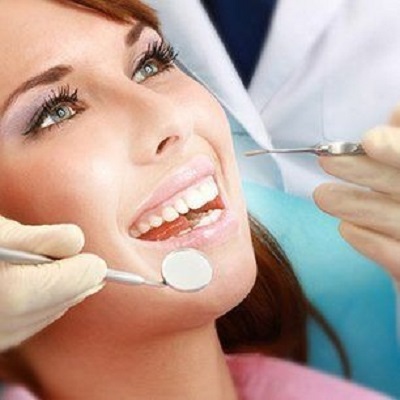Teeth grinding, also known as bruxism, is a common condition that affects many individuals, often leading to various dental issues and discomfort. In Dubai, many people seek solutions for teeth grinding at a General Dentistry Clinic Dubai. Understanding the causes, symptoms, and available treatments can help individuals manage this condition effectively and maintain their oral health. This article delves into the aspects of teeth grinding, offering insights into how it can be addressed.
Understanding Teeth Grinding:
Teeth grinding is the involuntary clenching or grinding of teeth, often occurring during sleep or times of stress. While it can happen at any age, it is particularly common among adults. Recognizing the causes and triggers of bruxism is crucial for effective management.
Types of Bruxism:
Bruxism can be classified into two main types:
Sleep Bruxism: This occurs during sleep and is often unconscious. Many individuals are unaware they are grinding their teeth until informed by a partner or dentist.
Awake Bruxism: This type occurs while a person is awake and may be associated with stress, anxiety, or concentration. Individuals may grind their teeth unconsciously when focused on tasks or during stressful situations.
Causes of Teeth Grinding:
Identifying the root causes of bruxism is essential for finding the right treatment. Various factors can contribute to the development of teeth grinding.
Psychological Factors:
Stress and anxiety are significant contributors to teeth grinding. Individuals experiencing high levels of stress may unconsciously grind their teeth as a coping mechanism. Emotional tension, frustration, or even excitement can trigger this response.
Dental Issues:
Misalignment of teeth or an abnormal bite can lead to bruxism. When the teeth do not fit together correctly, the body may react by grinding them to alleviate discomfort. This can create a cycle where grinding exacerbates dental misalignment.
Lifestyle Choices:
Certain lifestyle habits can increase the risk of teeth grinding. For example, excessive consumption of caffeine or alcohol can heighten stress and anxiety levels, leading to bruxism. Additionally, smoking has been linked to an increased risk of developing this condition.
Symptoms of Teeth Grinding:
Recognizing the symptoms of bruxism can help individuals seek appropriate treatment before the condition worsens. Common signs include:
Physical Symptoms:
Tooth Sensitivity: Increased sensitivity to hot or cold temperatures may indicate worn enamel due to grinding.
Jaw Pain: Individuals may experience discomfort or pain in the jaw, particularly upon waking.
Headaches: Frequent headaches, especially in the morning, can be a symptom of teeth grinding.
Dental Symptoms:
Worn Tooth Enamel: Over time, grinding can lead to significant wear on tooth surfaces, making them more susceptible to decay.
Cracked or Chipped Teeth: Excessive pressure from grinding can cause teeth to crack or chip.
Gum Recession: In severe cases, teeth grinding may contribute to gum recession, leading to further dental issues.
Diagnosis of Teeth Grinding:
Diagnosing bruxism typically involves a dental examination and assessment of symptoms. A general dentistry clinic in Dubai may employ various methods to identify bruxism:
Dental Examination:
During a routine visit, the dentist will examine the teeth for signs of wear, chips, or cracks. They may also assess the jaw for any signs of tension or discomfort.
Patient History:
Dentists often ask about the patient’s lifestyle, stress levels, and sleep patterns to understand potential causes of grinding. Keeping a sleep diary may help identify patterns related to bruxism.
Treatment Options for Teeth Grinding:
Once diagnosed, several treatment options can help individuals manage teeth grinding effectively.
Lifestyle Modifications:
Making changes to daily habits can significantly reduce the incidence of bruxism. Recommendations may include:
Stress Management: Engaging in relaxation techniques such as meditation, yoga, or deep-breathing exercises can help alleviate stress levels.
Avoiding Stimulants: Reducing caffeine and alcohol intake, particularly in the evening, can minimize the likelihood of grinding during sleep.
Dental Treatments:
If lifestyle modifications are insufficient, dental interventions may be necessary. Options include:
Mouthguards: Custom-fitted mouthguards are an effective solution for protecting teeth from grinding damage. These appliances cushion the teeth and reduce the impact of grinding.
Dental Correction: For individuals with misaligned teeth, orthodontic treatment may be recommended to correct the bite and alleviate pressure on the jaw.
Medical Treatments:
In some cases, medical intervention may be required. Options include:
Medications: Muscle relaxants or anti-anxiety medications can help reduce symptoms in severe cases of bruxism. These should be prescribed by a healthcare professional.
Botox Injections: In specific cases, Botox may be used to relax the jaw muscles and reduce grinding. This treatment can provide relief for individuals who do not respond to traditional therapies.
Preventing Teeth Grinding:
While it may not be possible to eliminate bruxism entirely, there are several preventive measures individuals can take to minimize its occurrence.
Establishing a Nighttime Routine:
Creating a calming bedtime routine can help prepare the body for sleep. Activities such as reading, taking a warm bath, or practicing relaxation techniques can promote better sleep quality.
Regular Dental Check-ups:
Routine visits to a general dentistry clinic in Dubai can help monitor dental health and detect any signs of bruxism early. Regular check-ups allow dentists to provide timely interventions before significant damage occurs.
Conclusion:
Teeth grinding is a prevalent condition that can lead to various dental issues if left untreated. By understanding the causes, symptoms, and available treatments, individuals can take proactive steps to manage bruxism effectively. For those seeking assistance, a general dentistry clinic in Dubai offers a range of solutions tailored to individual needs. With the right care and preventive measures, individuals can maintain their oral health and minimize the impact of teeth grinding on their daily lives.





Comments